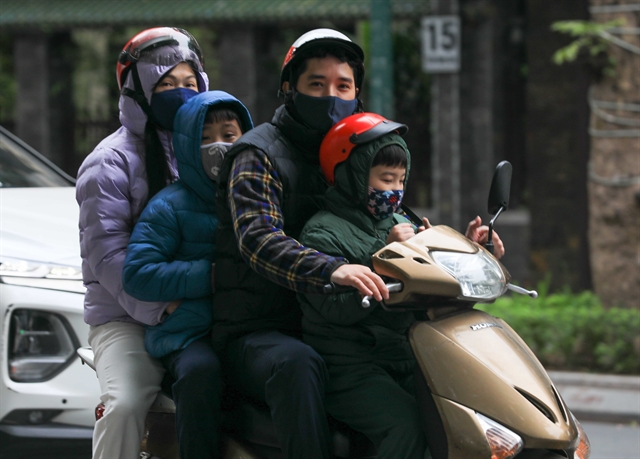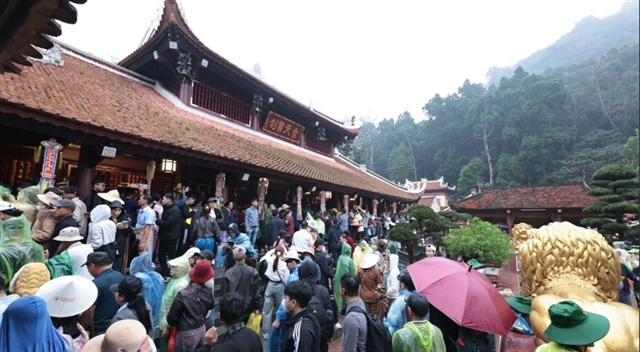 Society
Society


|
| A family with warm clothes to protect themselves from severe cold in Hà Nội. — VNA/VNS Photo Hoàng Hiếu |
HÀ NỘI — The severe cold spell affecting north and north central regions would last for many days, said Nguyễn Văn Hưởng, head of the Weather Forecasting Division under the National Centre for Hydro-meteorological Forecasting (NCHMF).
Cold weather will strengthen on Thursday and Friday, directly affecting provinces and cities in the two regions.
During the cold spell, the lowest temperature at night and early morning will range from 11-14 degrees Celsius.
In the northern mountainous area, it will be 7-10 degrees Celsius, while in the high mountainous area, it may even drop below 3 degrees C.
Provinces from Quảng Bình to Thừa Thiên-Huế will experience a temperature of15-18 degrees Celsius.
Severe and damaging cold would still occur in the north and north central regions next month and in February, but it would not last long and the number of cold and harmful cold days would be less than the average, according to the NCHMF.
Hưởng warned that low temperatures could potentially affect human health, plants and animals.
Therefore, to prevent and cope with severe and harmful cold, people need to regularly monitor forecasts and warning information on the NCHMF’s website nchmf.gov.vn, or local hydro-meteorological bureaus.
Forecasts and warnings about cold spells are announced very early and updated on daily reports by the NCHMF, so people should be vigilant especially when working outdoors, he said.
The National Steering Committee for Natural Disaster Prevention and Control instructed that grassroots-level authorities and people proactively prevent damage from the severe and harmful cold, and absolutely do not use traditional coal stoves for heating in closed rooms to avoid unfortunate incidents causing fatalities, as in some localities in recent years.
Provinces and cities must have plans to ensure students’ safety.
Authorities in areas affected by severe cold should strengthen education and guide livestock households on hygiene, cover to keep warm, and store food to ensure hunger and cold prevention.
They should also give guidance on disease prevention for livestock, poultry and aquaculture.
Localities must notify and guide tourists, and increase warnings on potentially icy and slippery roads to ensure safety for people and vehicles. — VNS




